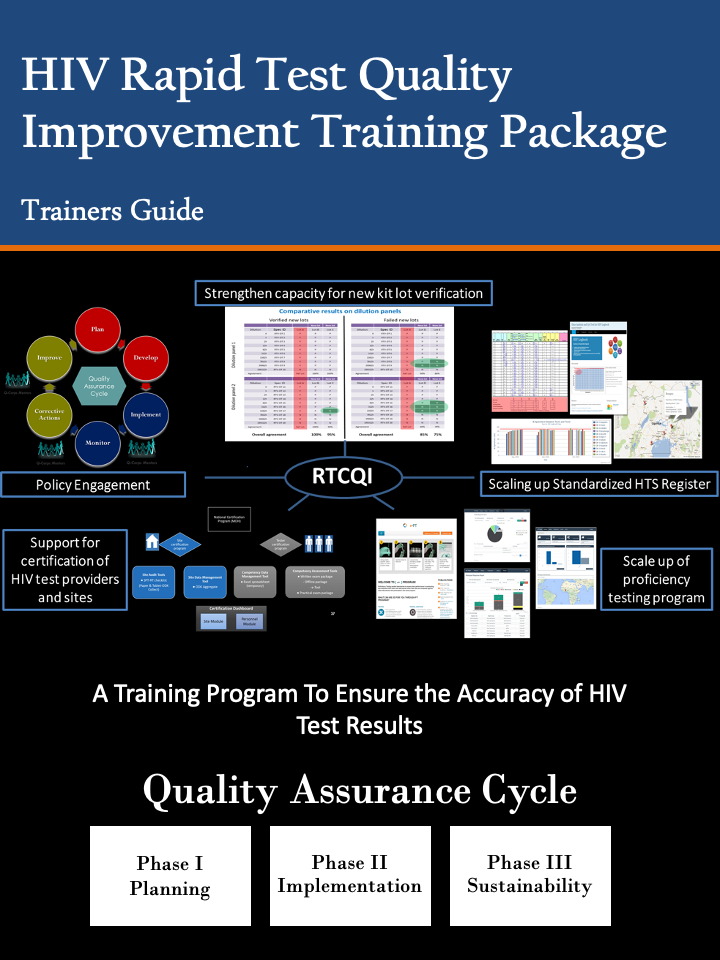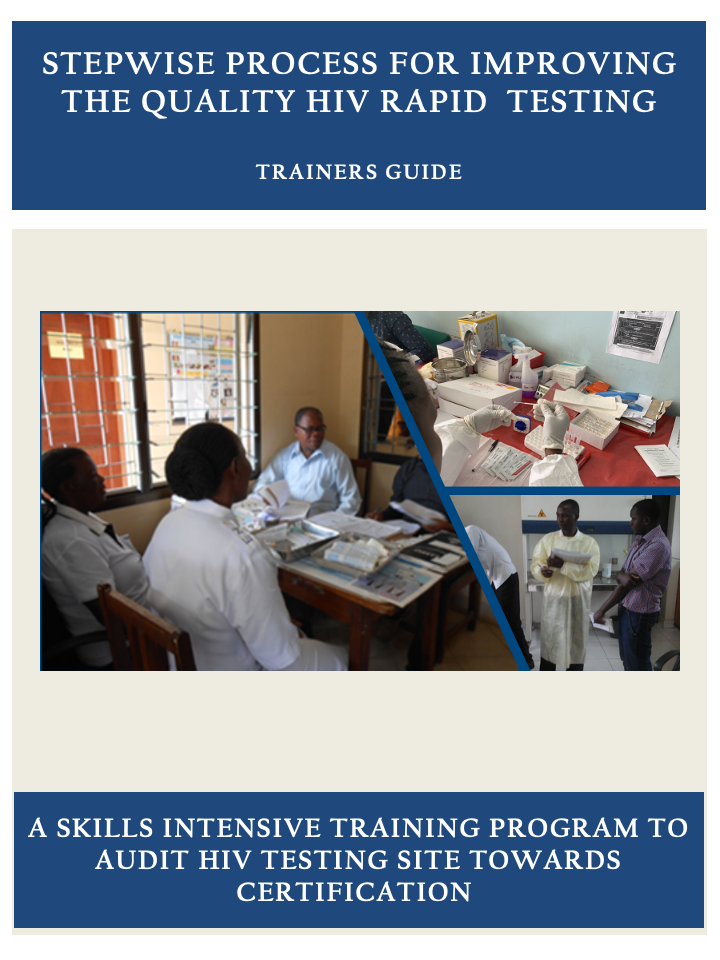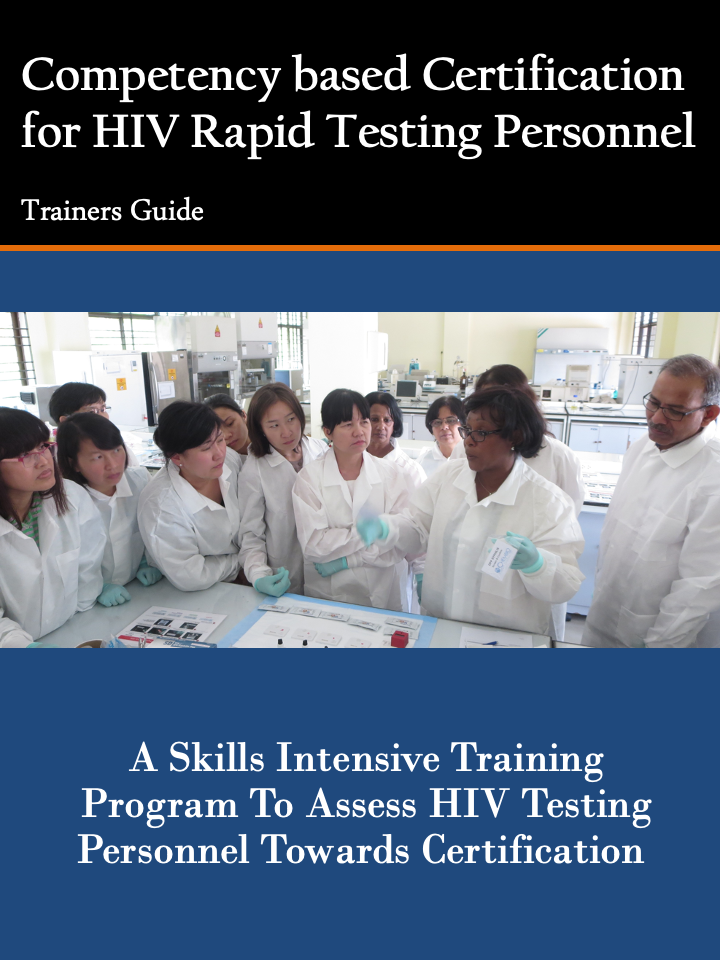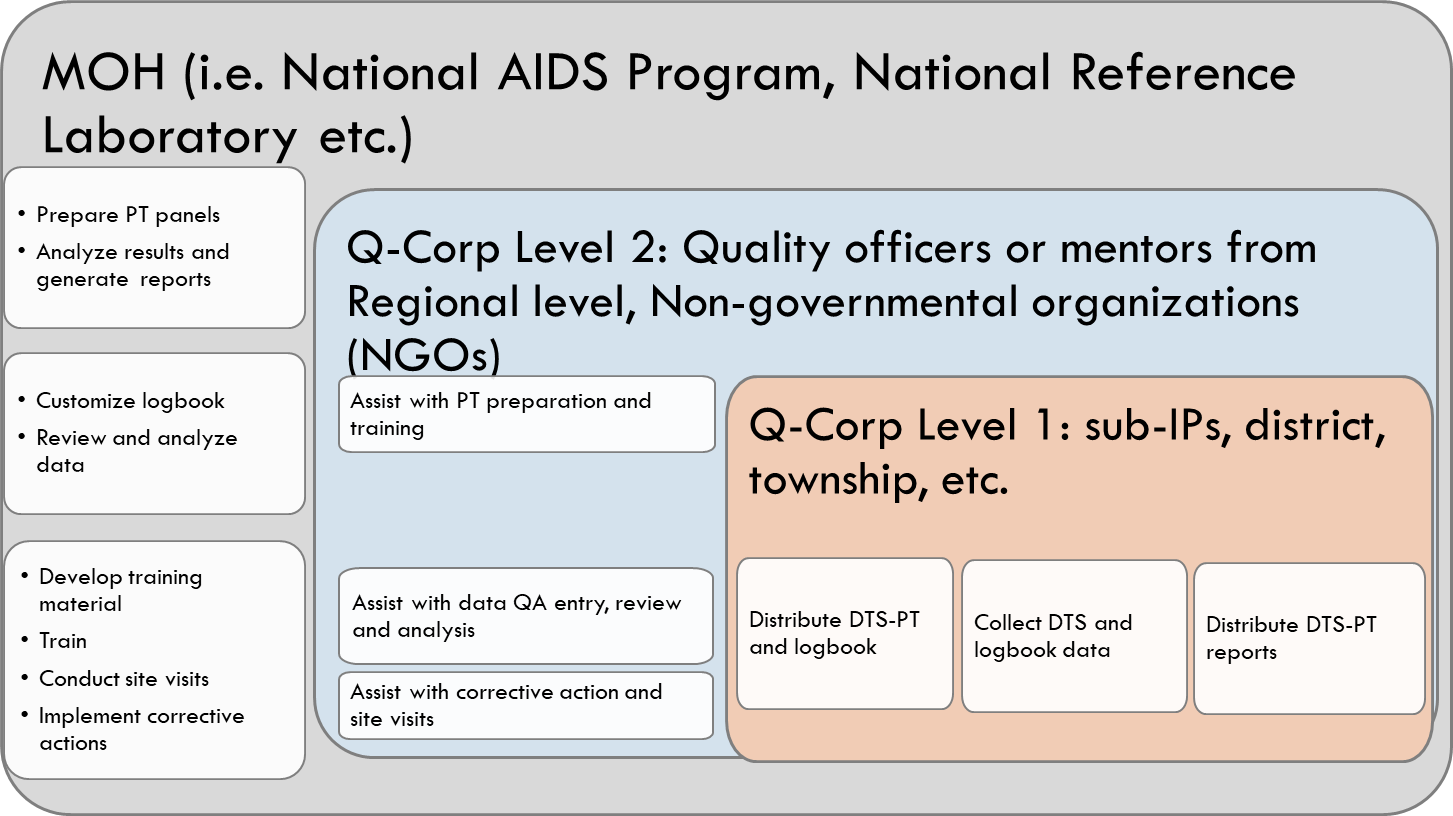Human Resource Development
The program is a comprehensive and continuous quality improvement training program which aims to strengthen quality management systems for HIV rapid testing, increase uptake and coverage, and achieve impact as countries are moving towards epidemic control. This interactive training program is composed of classroom or virtual presentations and over twenty hands-on activities, including laboratory sessions, computer-based data management and site audits. Individual activities or tools can be selected on as-needed basis depending on the gaps identified by the national HIV programs of the reference laboratory. This training program is designed to target primarily high to mid- level laboratory and program professionals who supervise and/or oversee testing site personnel and operations.
This training program aims to support HIV rapid testing sites’ continuous quality improvement toward certification using the Stepwise Process for Improving the Quality of HIV Rapid and Recency Testing (SPI-RRT) checklist for audit testing sites. The goal is to increase human resource capacity to certify testing sites according to national and international testing quality standards. This training program is interactive and composed of classroom presentations, 12 hands-on activities, site audits and computer-based data management and analysis. Local staff will be trained on conducting HIV testing site audits using the SPI-RRT checklist in addition to reviewing and analyzing the subsequent audit data to identify gaps and implement corrective actions for improvement in site quality management systems. It is designed to target primarily mid to high level professionals providing oversight to the HIV program in district, regional and provincial sites using the SPI-RRT checklist.
In order to equip countries with the technical expertise and the tools to adequately assess the tester competency, CDC in collaboration with Clinical Laboratory Standards Institute (CLSI) developed a training program aimed at developing a pool of competent evaluators/master trainers for HIV rapid testing personnel competency assessment in support of country’s initiative to roll-out personnel certification, ensuring qualified, competent testers are performing HIV rapid testing.
- To identify attributes and competencies of an evaluator of HIV-RT personnel competency.
- To develop an in-depth understanding of the personnel competency assessment tools.
- To demonstrate the required skills/knowledge to perform effective personnel competency assessments.
- To train others to successfully serve as evaluators of HIV-RT personnel competency.
Q-Corp Program - is a community based internship program to address the human resource challenges. This program has been develop to drive the implementation of quality assurance measures for HIV testing and to increase their uptake. It is supported by local partners who have embedded Q-corps volunteers within the existing MOH structure. The Q-corps work under the supervision or oversight of the MOH staff either at district level or at facility level. Trained Q-corps are assigned to perform specific tasks based on their training performance. Some tasks include collecting monthly testing summary data and reviewing testing logbooks for accuracy (Q-corps Level I). However, for Q-corps who demonstrate higher performance, they may provide more advanced technical assistance such as conducting site audits and mentoring testing sites personnel to improve their competency (Q-Corps Level II).



